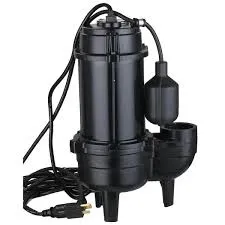English
- Afrikaans
- Albanian
- Amharic
- Arabic
- Armenian
- Azerbaijani
- Basque
- Belarusian
- Bengali
- Bosnian
- Bulgarian
- Catalan
- Cebuano
- Corsican
- Croatian
- Czech
- Danish
- Dutch
- English
- Esperanto
- Estonian
- Finnish
- French
- Frisian
- Galician
- Georgian
- German
- Greek
- Gujarati
- Haitian Creole
- hausa
- hawaiian
- Hebrew
- Hindi
- Miao
- Hungarian
- Icelandic
- igbo
- Indonesian
- irish
- Italian
- Japanese
- Javanese
- Kannada
- kazakh
- Khmer
- Rwandese
- Korean
- Kurdish
- Kyrgyz
- Lao
- Latin
- Latvian
- Lithuanian
- Luxembourgish
- Macedonian
- Malgashi
- Malay
- Malayalam
- Maltese
- Maori
- Marathi
- Mongolian
- Myanmar
- Nepali
- Norwegian
- Norwegian
- Occitan
- Pashto
- Persian
- Polish
- Portuguese
- Punjabi
- Romanian
- Russian
- Samoan
- Scottish Gaelic
- Serbian
- Sesotho
- Shona
- Sindhi
- Sinhala
- Slovak
- Slovenian
- Somali
- Spanish
- Sundanese
- Swahili
- Swedish
- Tagalog
- Tajik
- Tamil
- Tatar
- Telugu
- Thai
- Turkish
- Turkmen
- Ukrainian
- Urdu
- Uighur
- Uzbek
- Vietnamese
- Welsh
- Bantu
- Yiddish
- Yoruba
- Zulu
Telephone: +86 13120555503
Email: frank@cypump.com
Dec . 01, 2024 18:10 Back to list
giw slurry pumps
Understanding GIW Slurry Pumps Efficiency and Reliability in Heavy-Duty Applications
GIW Industries is renowned for its high-quality slurry pumps, specifically designed to handle the rigorous demands of mining, mineral processing, and various industrial applications. Slurry pumps are critical components in the transportation of abrasive and corrosive mixtures, making them indispensable in industries where efficiency and reliability are paramount.
What Are Slurry Pumps?
Slurry pumps are specialized centrifugal pumps used to move mixtures of liquid and solids, often referred to as slurry. The complexity of the slurry can vary significantly, from coarse materials such as gravel and sand to finer materials like mineral concentrates. Due to their design and construction, slurry pumps are built to withstand harsh conditions, ensuring they can efficiently transport these challenging materials without significant wear or failure.
The Importance of GIW Slurry Pumps
GIW slurry pumps stand out in the market due to their innovative design, advanced materials, and engineering excellence. These pumps are engineered to handle a wide range of applications, including
1. Mining Operations In the mining industry, slurry pumps are essential for moving tailings and transporting ores. The abrasiveness of the materials being pumped necessitates pumps that can endure extreme wear and tear while maintaining performance.
2. Dredging GIW pumps are utilized in dredging operations for transporting sediments and other heavy materials. Their robust design allows them to thrive in challenging environments, reducing downtime due to pump failure.
3. Pulp and Paper In the pulp and paper industry, slurry pumps are used to move wood chips and pulp, requiring reliability and efficiency to keep production schedules on track.
4. Waste Management These pumps are also effective in municipal and industrial wastewater management, where they transport sludge and other waste materials.
Features of GIW Slurry Pumps
giw slurry pumps

1. Durability GIW pumps are constructed from high-quality materials such as high-chrome alloys and elastomers, providing superior wear resistance and extending the life of the pump even in abrasive conditions.
2. Customizable Designs GIW offers a range of pump designs to meet specific needs, including the ability to handle large particle sizes and high flow rates while maintaining effective performance.
3. High Efficiency With advanced hydraulic designs, GIW slurry pumps deliver high efficiency, reducing energy consumption and lowering operational costs.
4. Ease of Maintenance Designed with serviceability in mind, GIW pumps offer features that simplify routine maintenance, allowing operators to reduce downtime and enhance productivity.
Advantages of Using GIW Slurry Pumps
The advantages of GIW slurry pumps extend beyond their immediate applications. Their widespread use brings several benefits
- Increased Productivity With pumps designed for high performance and durability, industries can ensure continuous operations, maximizing throughput and efficiency.
- Cost-Effectiveness Although initial investment may be higher than less specialized pumps, the long-term savings from reduced maintenance and extended pump life often justify the expense.
- Environmental Compliance Efficient slurry pumps help manage waste and processing needs effectively, contributing to environmentally friendly practices within industries.
Conclusion
In conclusion, GIW slurry pumps represent a pinnacle of engineering in the realm of fluid transport solutions. With their exceptional durability, efficiency, and customizability, these pumps are pivotal in various industries—including mining, dredging, and wastewater management. By prioritizing quality and performance, GIW Industries has established itself as a leader in the slurry pump market, helping companies meet the challenges of today’s demanding operational environments. As industries continue to evolve, the role of reliable, efficient slurry pumps like those produced by GIW will only become more critical in driving productivity and sustainability forward.
-
Heavy-Duty Mining Sludge Pumps - Wear-Resistant Slurry Handling
NewsAug.02,2025
-
Horizontal Split Case Pump with GPT-4 Turbo | High Efficiency
NewsAug.01,2025
-
ISG Series Pipeline Pump - Chi Yuan Pumps | High Efficiency, Durable Design
NewsAug.01,2025
-
Advanced Flue Gas Desulfurization Pump with GPT-4 Turbo | Durable & Efficient
NewsJul.31,2025
-
ISG Series Vertical Pipeline Pump - Chi Yuan Pumps | Advanced Hydraulic Design&Durable Construction
NewsJul.31,2025
-
ISG Series Vertical Pipeline Pump - Chi Yuan Pumps | Energy Efficient & Low Noise
NewsJul.31,2025










